
what you'll learn...
Overview
Representation of Vectors
» Specify amount or magnitude and direction
→ m east and m north
→ m east and m north-east
» How were the quantities added?
→ m east + m north = as per Pythagoras theorem
→ m east + m north-east : Making this easy to do is the objective of "vector algebra"
» Position of an airplane
→ 3Okm east (x-axis) =
→ 40km north (y-axis) =
→ 4km altitude (z-axis) = 4k
» component form of a vector
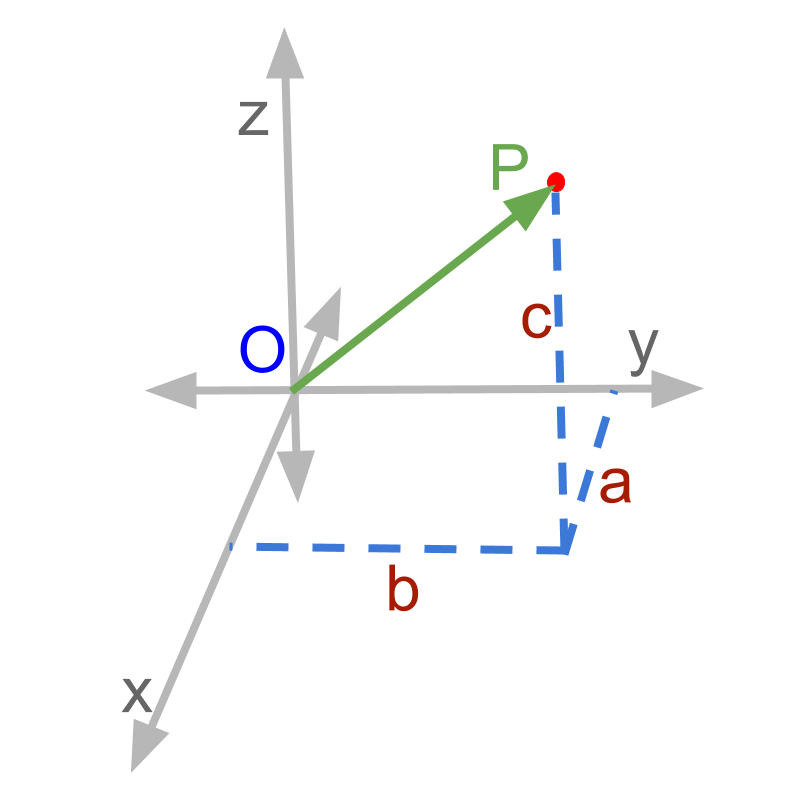 → ,, represent the direction along , , and axes
→ ,, represent the direction along , , and axes
→ , , represent the amount or magnitude along the given directions
illustrative example
If someone is calculating the position of an airplane, a reasonable specification of the position is
km to the east, km north, and at km altitude above sea level
This specifies - North, East, and Altitude. With these three pieces of information, the position of the airplane is specified clearly.
We have arrived at representing vectors that have magnitude and direction.
The representation is
km East + km North + km Altitude
This can be generalized to a 3D space with three axes x-axis, y-axis, and z-axis. The figure represents x-axis, y-axis, and z-axis. A point 'p' is shown.
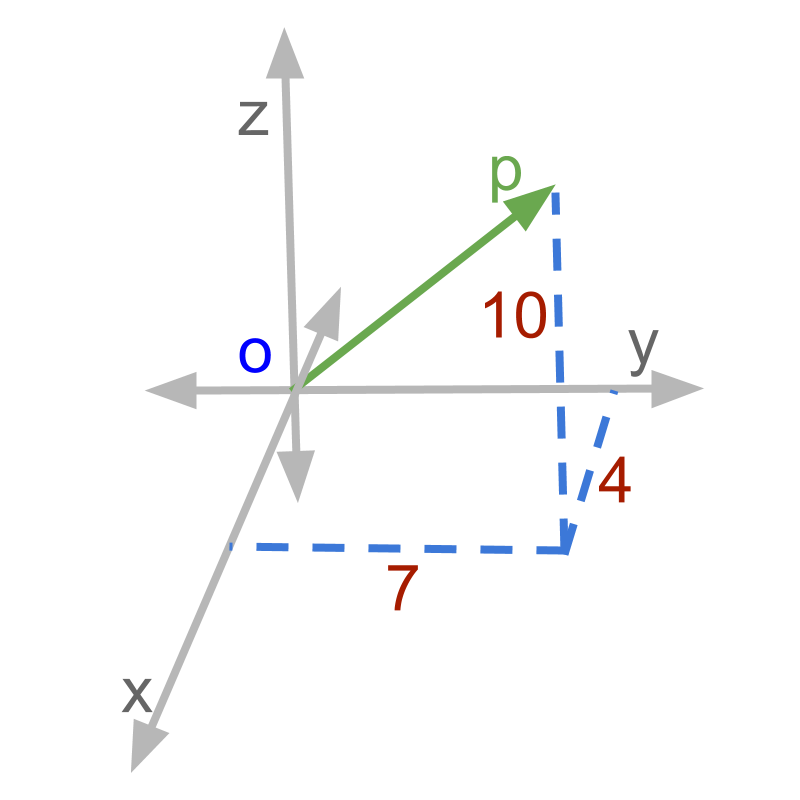
The x, y, and z coordinates are given as . The point given in figure is ''.
The point is projected onto x-y plane. That is further projected onto x and y axes.
The airplane can be considered as the point 'p' in the three dimensional space. The representation is simplified as
or alternatively
Where
or represents the direction in -axis
or represents the direction in -axis
or represents the direction in -axis
Note: is pronounced as i-hat or i-cap.
A 3D vector quantity is represented with 3 components along the three directions of 3D coordinates.
Mathematical representation: A 3D vector quantity is represented in the form
or alternatively
Where i, j, k are the directions along x, y, and z axes
and a, b, c are the magnitude along the directions respectively.
examples
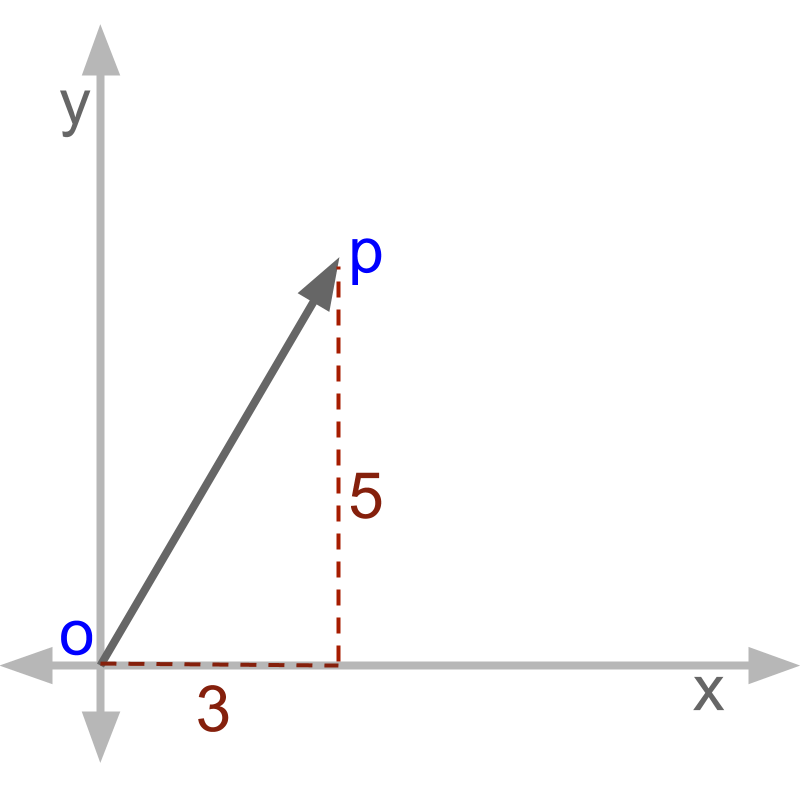
Represent OP as a vector.The answer is ''.
The x-axis component is represented with an and y-axis component is represented with a .
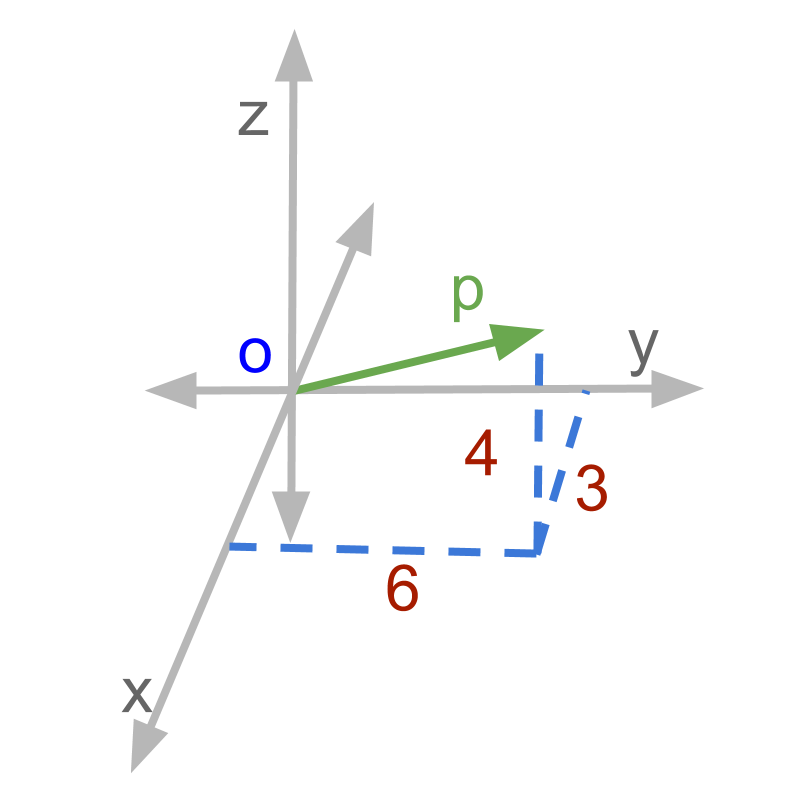
What is the vector form of ? The answer is ''. Referring to the figure, the component along each of the axes
: along x axis
: along y axis
: along z axis
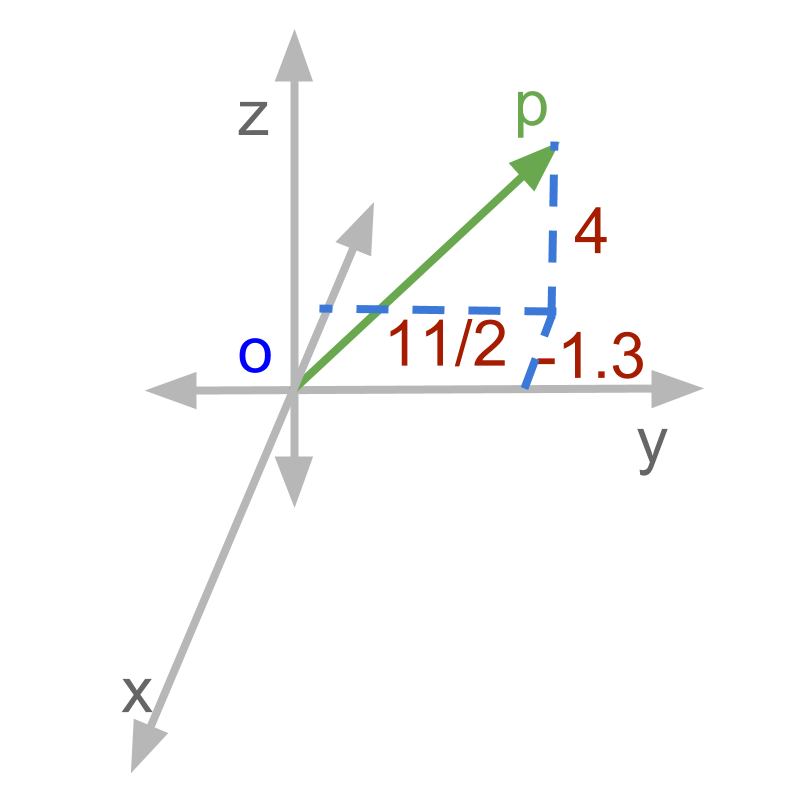
What is the vector form of OP? The answer is ''.
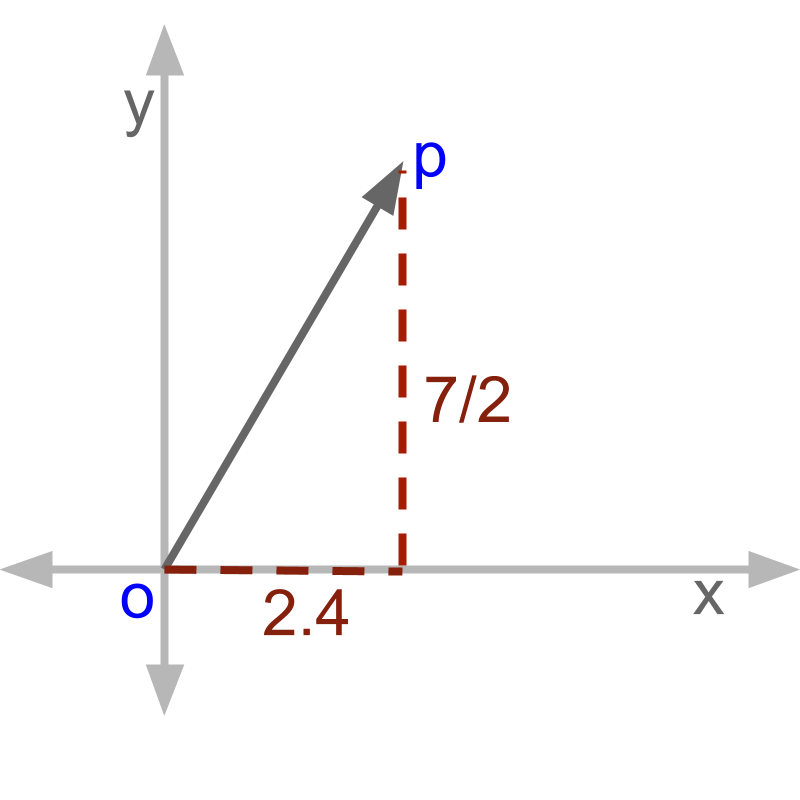
What is the vector form of OP? or When a two dimensional vector is presented, the component along the third dimension is 0.
A point is located from the x, y, z-axes at distances , , and units respectively. What is the vector representation of the point?
The answer is ''
What does a mean?
the point P is unit away from origin along x-axis
the point P is unit away from origin along y-axis
the point P is unit away from origin along z-axis
summary
Mathematical representation: A 3D vector quantity is represented in the form
or alternatively
Where i, j, k are the directions along x, y, and z axes
and a, b, c are the magnitude along the directions respectively.

Outline
The outline of material to learn vector-algebra is as follows.
Note: Click here for detailed outline of vector-algebra.
• Introduction to Vectors
→ Introducing Vectors
→ Representation of Vectors
• Basic Properties of Vectors
→ Magnitude of Vectors
→ Types of Vectors
→ Properties of Magnitude
• Vectors & Coordinate Geometry
→ Vectors & Coordinate Geometry
→ Position Vector of a point
→ Directional Cosine
• Role of Direction in Vector Arithmetics
→ Vector Arithmetics
→ Understanding Direction of Vectors
• Vector Addition
→ Vector Additin : First Principles
→ Vector Addition : Component Form
→ Triangular Law
→ Parallelogram Law
• Multiplication of Vector by Scalar
→ Scalar Multiplication
→ Standard Unit Vectors
→ Vector as Sum of Vectors
→ Vector Component Form
• Vector Dot Product
→ Introduction to Vector Multiplication
→ Cause-Effect-Relation
→ Dot Product : First Principles
→ Dot Product : Projection Form
→ Dot Product : Component Form
→ Dot Product With Direction
• Vector Cross Product
→ Vector Multiplication : Cross Product
→ Cross Product : First Principles
→ Cross Product : Area of Parallelogram
→ Cross Product : Component Form
→ Cross Product : Direction Removed